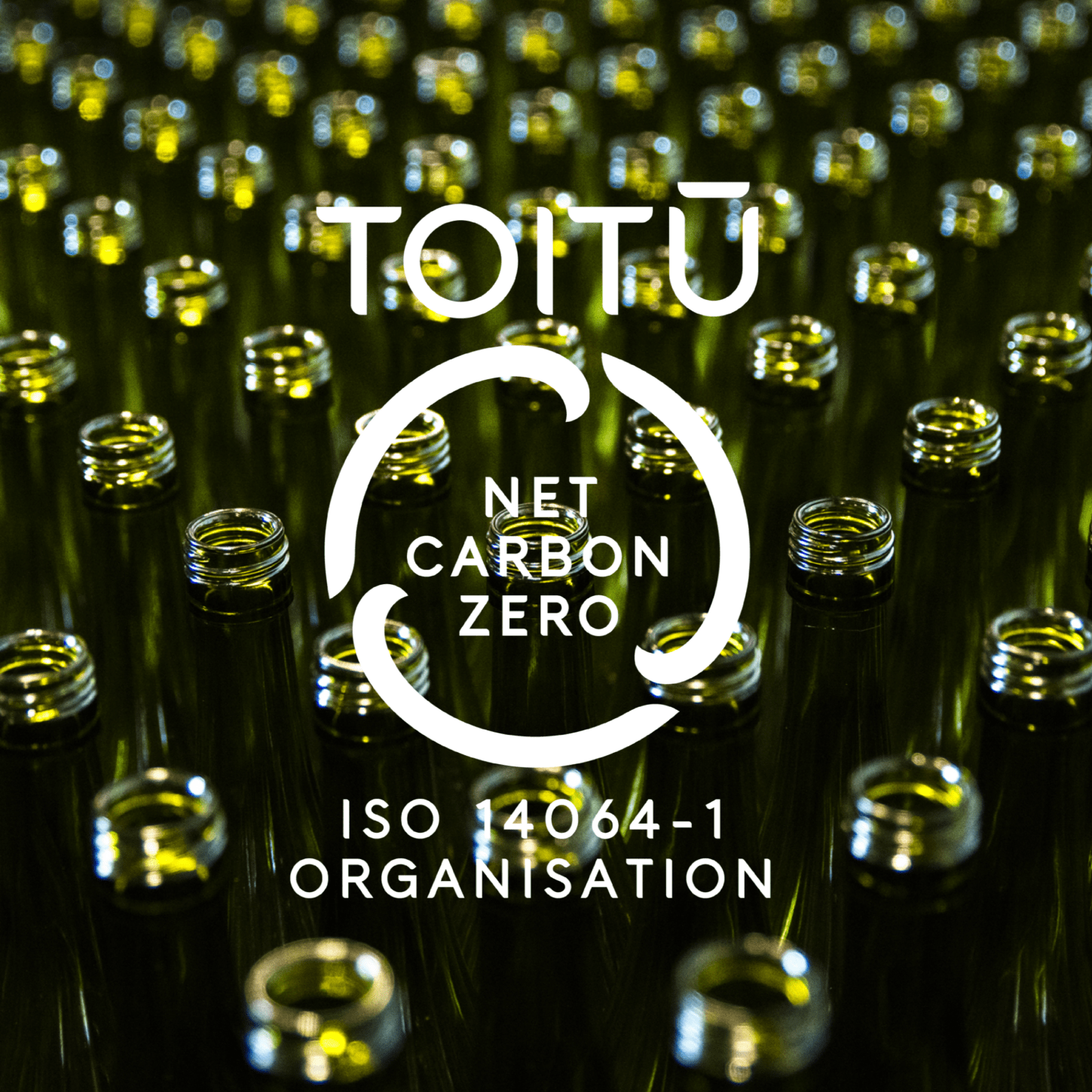
December 7, 2023
Four years ago, we joined New Zealand’s most well-known organization for sustainability credentials: Toitū Envirocare.
We pledged to reduce our carbon emissions by 30% with a deadline of 2023. The results are in, and we have successfully reduced our baseline emissions by 45%! This is no small feat, considering production has increased by 30% in those years, meaning emissions per case are down by 58%!. We couldn’t be happier with the outcome; many of us needed to pinch ourselves after hearing the news.
In the first three years with Toitū, our biggest areas of reduction were…
Electricity:
With electricity, we looked at ways of mitigating that footprint. We worked across the sites on various projects such as upgrading our lighting to energy efficient LED fittings, and installing timed motion sensors just in case one forgets to turn the lights off. Marlborough focused on identifying high-energy use machinery through monitoring and making changes to equipment or how they used it. These are great initial steps, but the investigation into green energy was our golden goose in this area. Our Auckland and Hawke’s Bay sites signed up with Ecotricity: the country’s only Toitū climate positive electricity provider. WineWorks Marlborough partnered with Meridian and offset emissions through carbon credits. The key takeaway from this part of our sustainability journey is that these changes were simple and at the ready – yet they made a big impact and are accessible for anyone to achieve.
CO2:
Another large point of focus was reducing our consumption of CO2 gas. Between 2022 and 2023, the emissions of CO2 at our sites dropped considerably. The closure of Marsden Point in 2022 and temporary shutdown of Kapuni in 2023 fast-tracked the importance of finding an alternative. CO2 gas has many uses across WineWorks for wine protection and at Hawke’s Bay with in-line carbonation. Because of the sudden uncertainty and struggles to source alternative CO2 suppliers, we trialled using nitrogen gas to blanket the tanks, which was a success to the point where WineWorks Marlborough no longer uses CO2 at all. Market restrictions forced innovation by our team and worked out for the best.
Transport:
Transport across the business went under the magnifying glass too – with staff and product movement as areas to improve. Staff have been encouraged to only travel between sites if it’s strictly essential, to reduce the number of flights we accrue yearly. Truck movements across WineWorks Marlborough have been replaced by an electric tug, cutting 4 tonnes of CO2 emissions, and removing the reliance on fossil fuel. Our forklift fleets across the sites have been regularly upgraded for more efficient batteries too.
Next steps:
- Improve waste reduction and emissions from refrigerants and coolants across the business.
- Our sustainability team is developing an app which can measure each department at each site’s waste to landfill.
- Emphasise that all WineWorks staff have a role to play with reducing our waste to landfill figures.
- Further the partnership between WineWorks Hawke’s Bay and ‘Sustainable is Attainable’ – a collective of food manufacture organisations.
We believe that operating sustainably is a choice, and we have the reassurance of being held to account by a verified program. Our pledge with Toitū challenges us to do better. Knowing that we are the only net carbon zero wine bottling facility in New Zealand motivates us and is something we are proud of.
